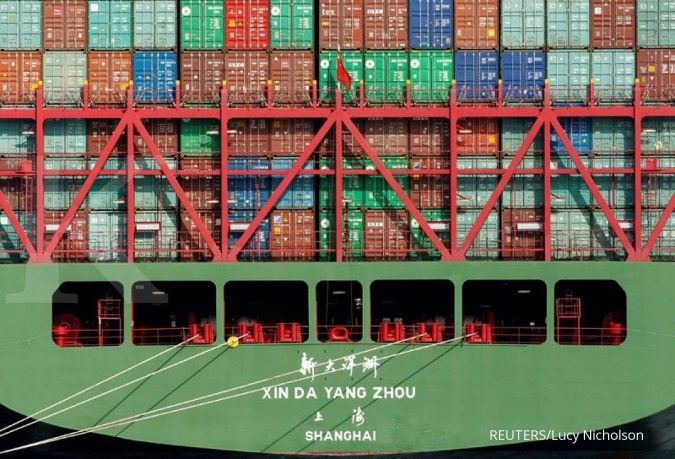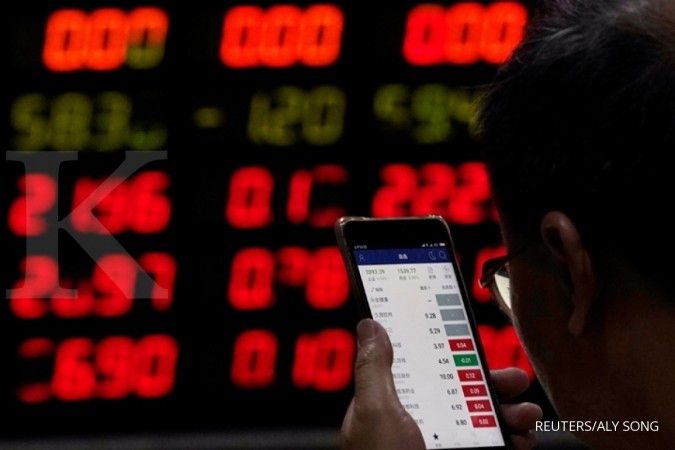KONTAN.CO.ID - SHANGHAI. Chinese stocks jumped in late trade on Friday, reversing earlier losses, but the yuan remained weaker against the dollar as U.S. tariffs on Chinese goods kicked in, escalating the trade row between the world's two largest economies. The United States imposed tariffs on $34 billion of Chinese imports at 0401 GMT. Chinese state media said Friday that China had implemented tariffs on $34 billion worth of items imported from the U.S. in response. At 0630 GMT, the benchmark CSI300 Index was up 1.1 percent. The Shanghai Composite Index was 0.8 percent higher after flirting with two-year lows in the morning session.
Market participants said some investors were buying heavily beaten down stocks following this week's selloff, though they remain sceptical about sustainability of the late rally. "It looks more like a self-initiated market rebound," said a Shanghai-based hedge fund manager, who declined to be identified. The fund manager, who tracks big money flows for suspected state intervention, said she didn't see any evidence of buying from state investors to support the market. "State intervention is bad for the market, as it only prolongs, rather than stems the market fall, if we're not yet at the bottom," she said. Analysts said the outlook for shares remained shaky. "The chances are slim for China and the U.S. to reach an agreement on trade issues, and trade war worries will be a long-term uncertainty for at least the next two years," said Yan Weixiao, an analyst with Founder Securities, adding that things could be "dangerous" for Chinese stocks. Yan said the psychologically key level of 2,638 points for the SSEC, which was hit in March 2016, will probably be broken. As stocks turned around, Chinese treasury futures fell. Chinese 10-year treasury futures for September delivery, the most-traded contract, were 0.27 percent lower at 95.580. China's yuan was just 0.1 percent weaker against the dollar at 6.6453, trimming losses as the dollar fell.
"There shouldn't be huge volatility in the market because it's all expected. Investors know what's going to happen and it has already been priced in," said Li Liuyang, senior foreign exchange analyst at China Merchants Bank in Shanghai, referring to the yuan market. "The market will pay attention to any follow up, whether Trump escalates further, or anything unexpected happens." Gao Qi, FX strategist at Scotiabank, said in a note on Friday he expected the Chinese authorities to step in to calm the market and prevent the yuan from sharply depreciating if need be. "We see a strong resistance of 6.70 for now and the 6.90 level seems China's bottom line for the yuan exchange rate. The yuan will certainly face intensifying depreciation pressure again going forward if China fails to de-escalate trade tensions with the U.S.," he wrote.






